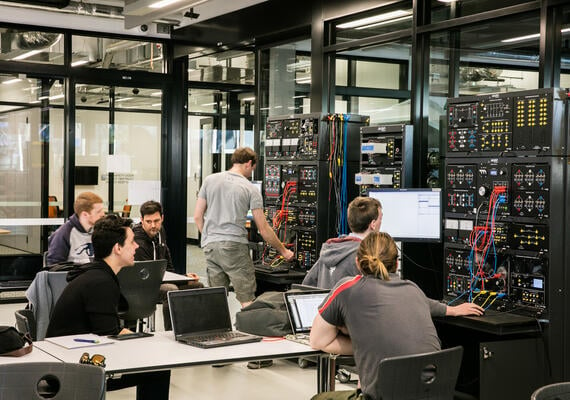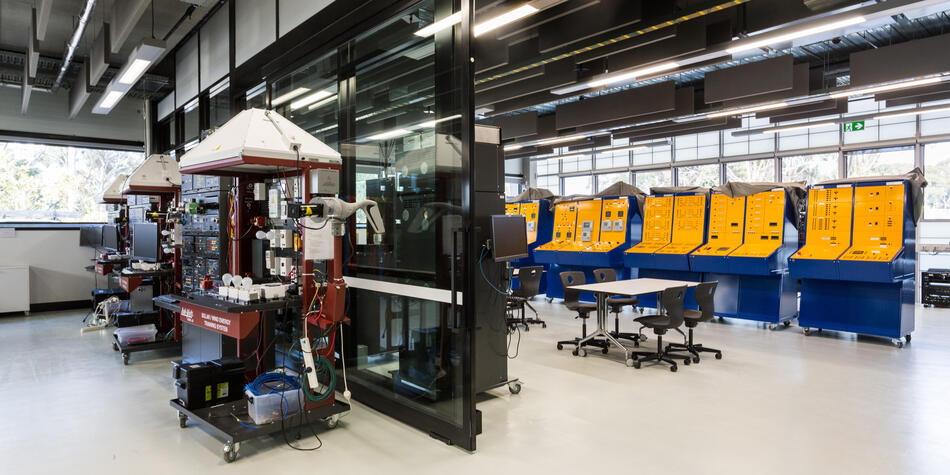Located at our Geelong Waurn Ponds campus, our Renewable energy and AusNet electrical engineering labs cover a wide range of electrical engineering concepts, including fundamental properties of electrical protection systems, electrical transmission networks, AC and DC motors and generators, and renewable energy technologies.
Gain hands-on experience throughout your degree
As an electrical and electronics or mechatronics degree student, you’ll get to spend your time gaining practical hands-on experience within the lab; along with students completing their final-year projects. Research students undertaking their masters or PhD, as well as academic staff, also use the labs for research projects.


